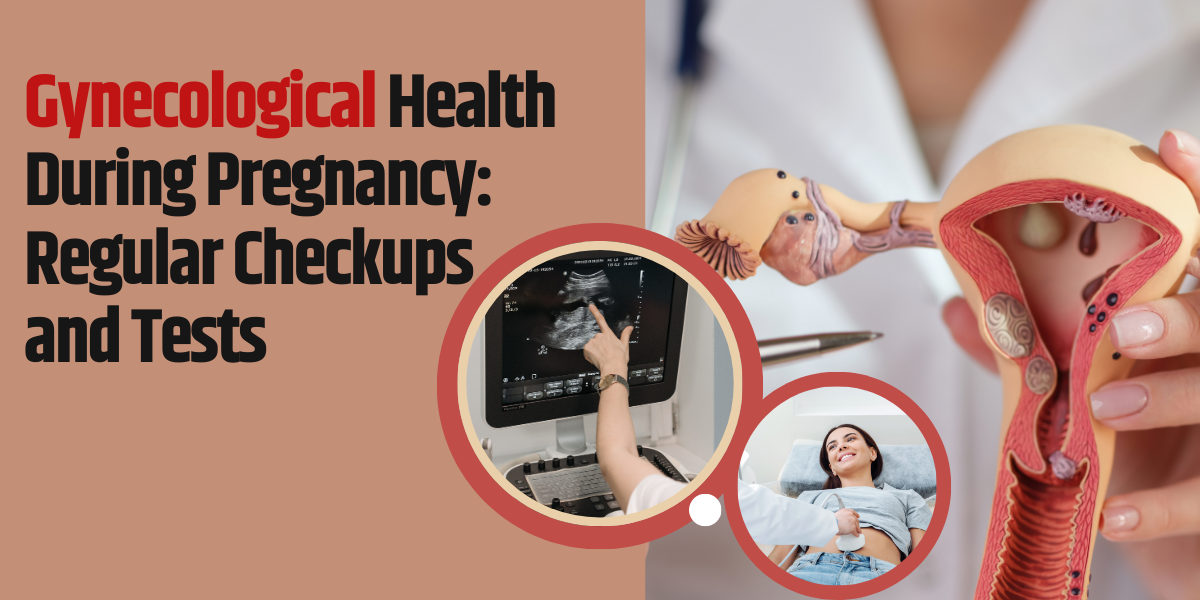Gynecological Health During Pregnancy: Regular Checkups and Tests Pregnancy is an exciting journey filled with many changes and emotions. It is also a crucial time for a woman’s health, making regular checkups and tests essential. These visits help monitor the mother’s and baby’s health, ensuring a smooth pregnancy. If you’re looking for a trusted gynecologist in Magarpatta, Pune Dr. Manisha Kulkarni is an excellent choice to guide you through this important phase. The Importance of Regular Checkups Monitoring Your Health: Regular checkups allow your gynecologist to track your health throughout the pregnancy. These visits help identify any potential issues early on, such as gestational diabetes, high blood pressure, or infections. By staying ahead of these problems, your doctor can provide the appropriate treatment to ensure your safety and that of your baby. Tracking Baby’s Development: During checkups, your gynecologist will monitor the baby’s growth and development. This is usually done through ultrasounds, fetal heart rate checks, and other assessments. These tests ensure that the baby is growing as expected and can help identify any concerns early on. Discussing Symptoms: Every pregnancy is unique, and women experience various symptoms. Regular checkups provide an opportunity to discuss any concerns or symptoms you may have, such as nausea, fatigue, or unusual pain. Your doctor can offer advice and solutions to make your pregnancy more comfortable. Essential Tests During Pregnancy Several tests are typically performed throughout your pregnancy to monitor your health and the baby’s development. Here are some important ones: Blood Tests: Early in your pregnancy, blood tests are conducted to check for blood type, Rh factor, and any infections, such as HIV or syphilis. These tests are crucial for ensuring that you and your baby receive the best care throughout the pregnancy. Urine Tests: Urinalysis is done during regular checkups to check for signs of infection or complications like gestational diabetes. Monitoring protein levels in your urine can also help detect preeclampsia, a serious condition that can occur during pregnancy. Ultrasounds: Ultrasound scans are essential in monitoring your baby’s growth and development. The first ultrasound is typically performed between 6 and 10 weeks to confirm pregnancy and check the fetal heartbeat. Subsequent ultrasounds are done at various stages to assess the baby’s growth and position. Glucose Screening: Around 24 to 28 weeks, a glucose screening test is performed to check for gestational diabetes. This involves drinking a sugary solution and then having your blood tested. If your results are abnormal, further testing may be necessary. Group B Strep Test: Between 35 and 37 weeks, a test for Group B Streptococcus (GBS) is done. This bacteria can be harmless for adults but can cause serious infections in newborns. If you test positive, your doctor will provide antibiotics during labor to protect your baby. Lifestyle Changes and Health Tips In addition to regular checkups and tests, maintaining a healthy lifestyle during pregnancy is vital. Here are some tips: Nutrition: Eating a balanced diet rich in fruits, vegetables, whole grains, and lean proteins is crucial for both you and your baby. Proper nutrition supports your baby’s growth and helps you manage pregnancy symptoms. Exercise: Regular, moderate exercise can help reduce discomfort and improve your mood. Consult your gynecologist for safe exercises during pregnancy. Activities like walking, swimming, or prenatal yoga can be beneficial. Hydration: Staying hydrated is essential during pregnancy. Drink plenty of water to support your body and help with common issues like swelling and constipation. Rest: Pregnancy can be tiring, so prioritize rest and sleep. Listen to your body and take breaks when needed. Avoid Harmful Substances: Stay away from alcohol, tobacco, and drugs during pregnancy. These substances can harm your baby and lead to complications. When to Seek Help While regular checkups are essential, it’s equally important to know when to seek medical advice. If you experience severe abdominal pain, heavy bleeding, severe headaches, or any unusual symptoms, contact your gynecologist immediately. Early intervention can prevent complications and ensure the health of both you and your baby. Maintaining gynecological health during pregnancy is vital for ensuring a safe and healthy experience for both the mother and baby. Regular checkups and tests help monitor progress and address any concerns promptly. If you’re looking for a caring and experienced gynecologist in Magarpatta, Pune, consider consulting Dr. Manisha Kulkarni, who can guide you through this incredible journey. Remember, your health and your baby’s health are the top priority during this special time, so don’t hesitate to seek care and support.


